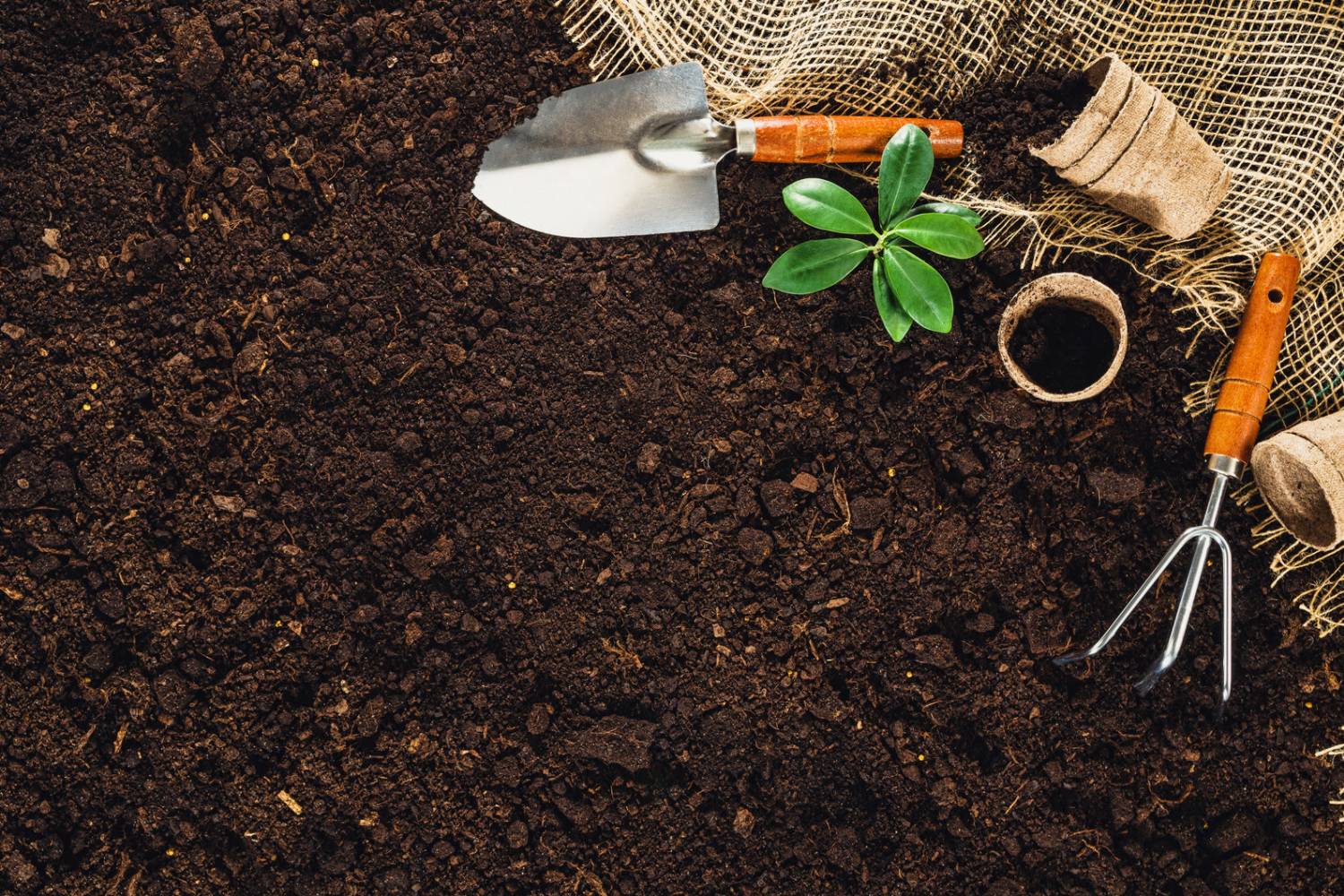
If you're looking to start growing herbs, you'll need to choose the right soil. Not all soils are created equal, and some will be better suited for growing herbs than others. In this blog post, we'll discuss the best soil for herbs and what you need to know before choosing a soil type. We'll also provide a few tips on how to care for your herb garden. So, if you're ready to start learning about herb gardening, keep reading!
What type of soil is best for growing herbs?
If you're looking to grow your own herbs, you'll want to make sure the soil is just right. There are many types of soil that can be used to grow herbs, but the best soil for growing herbs is a well-drained, sandy loam. Sandy soils are good for growing plant herbs because they are acidic and have good drainage.
Other than that, the following are some factors that must be considered while choosing the best possible soil for growing your herbs.
What to consider when choosing the best soil for Herbs
Location
Choosing the right soil for herbs can be a daunting task. There are so many factors to consider, from climate to pH levels. But one of the most important factors is location. Choose a location that has a good amount of sunlight and well-drained soil, this will ensure that your herbs have enough water, nutrients, and sunlight. As with any other plants, you should also consider the climate of the area. Keep in mind that herbs grow best during spring and summer, but you should also keep in mind the temperatures and rainfall of that particular location.
Different plants require different soil locations for optimum growth. If you're growing your own herbs, it's important to consult with a gardening expert or check online resources to find the best soil location with the best climate conditions for your specific type of herb.
Fertilizer and other ingredients
When selecting soil, Firstly make sure that soil needs are adequate in nutrients, and second, it should be free from contaminants. While choosing the best soil for herbs also includes selecting a substrate that is compatible with the herb's growth pattern and desired environment. Choose soil that has high fertility levels. For most herbs, a ratio of 1 part per 1 part soil to 3 parts per 1 part water is ideal. This will ensure that the substrate has enough nutrients for the plants to flourish.
Also, make sure there are no contaminants in your soil such as chemicals or pesticides. It is recommended that you choose clean and organic certified soil. Also, the best soil for herbs is one that is well-drained and aerated. Experiment with different soils until you find the perfect one for your specific herb.
Nutrient requirements of herbs
When considering the best soil for herbs, it is important to take into consideration not only the herb's desired plant profile but also its nutrient requirements. To do this, some basic information on each herb's nutrient needs can be obtained by researching its individual cultivation guide. Once this information is known, choosing a soil that is compatible with the herb's specific needs can be accomplished.
Herbs have extensive nutrient requirements and must be grown in a well-diverse soil mix with plenty of organic matter. fertilize herbs regularly with compost or manure. Some common herb nutrients include nitrogen, phosphorus, potassium, magnesium, manganese, and zinc. Proper irrigation is also essential to ensure good plant growth and flowering. So, while choosing soil for herbs, make sure they have all these qualities so optimal growth of herbs can be obtained.
pH Level
Herbs need acidic and alkaline soils to grow well. There are many factors to consider when choosing the best garden soil for an herb, such as pH level, texture, and drainage. Herbs do best in soils with a pH level of 6.1 to 7.0.
To determine the pH level of your soil, dig down about 12 inches and take a sample. If the soil is too acidic or too alkaline, you can adjust the pH by adding acids or alkalis, respectively, to the soil.
Organic vs. Nonorganic
An organic soil amendment can be a great way to improve the health and vigor of herbs, while a nonorganic soil amendment can provide needed nutrients. When choosing an amendment, it's important to consider the type of herb you're growing and the conditions of your garden or landscaping.
Both organic and inorganic soil is suitable for herbs. If your primary focus is continuously improving the health of your herbs, choose organic soil and if your primary focus is providing enough nutrients to your herbs, go for inorganic soil.
Water consumption
Water consumption is an important aspect to consider when choosing the best soil for herbs. Different herbs require different amounts of water, so it is important to research which herbs will grow well in your garden soils and adjust the watering schedule accordingly. Additionally, it is important to make sure the soil you select is able to absorb and hold water.
Drainage
The best soil for herbs may vary depending on the type of herb being cultivated, but there are some general principles that should be followed when selecting a soil. One of the most important factors to consider is drainage. Herbs need plenty of moisture to thrive, and if they are not well-drained, they will become waterlogged and susceptible to root rot and other pests.
Things to consider for growing herbs indoor
There are many factors to consider when growing indoor plants. The climate, light, and soil can all be important considerations. Here are a few things to keep in mind:
- Water the plants regularly; too much or too little water can impact herb growth.
- Choose a potting mix that has certain qualities. The best potting soil contains the desired level of humidity, drainage system, and aeration quality.
- Potting mixes must contain
- Potted herbs perform well when they are provided with certain fertilizers like peat moss, perlite, etc.
- Enough nitrogen to support healthy plants
- A balanced ratio of essential minerals
- A sufficient amount of water to keep the mix moist
How do you prepare the soil for planting herbs?

Soil preparation is an important part of gardening. You need to make sure the soil is healthy and ready for planting, and that the plants will get the nutrients and water they need to grow. There are a few steps you can need to follow to prepare your soil for herbs.
Step 1: Decide where you want to plant the herbs
There are many factors to consider when planting herbs: sunlight, water, soil type, and location. Here are some tips to help you decide where to plant your herbs.
First, think about where you want the herb to grow. Most herbs like full sun but a few, such as parsley and cilantro, do well in partial shade.
Secondly, consider your climate. Make sure you choose the climate and location which will suit your desired planted herb.
Step 2: Till the soil and remove any rocks or debris
This is the second step in preparing your garden for planting. It involves tilling the soil and removing any rocks or debris. This will make the area ready for planting. Till the soil and remove any rocks or debris. Use a tiller or rototiller to turn over the soil, breaking up clumps. Add organic matter (leaves, straw, manure) and water until the soil is moist but not wet. Work in a layer of compost or other organic matter before planting.
Step 3: Add compost or manure to the soil and mix it in well
Adding compost or manure to the soil is one of the best ways to improve the quality and fertility of your garden, help to maintain plant health, and provide nutrients for plant growth. When compost or manure is added to soil, it should be mixed well before being used. By mixing these organic materials into the soil, you are helping to break down the dead plants and waste, creating potting soils that are perfect for growing herbs.
Step 4: Plant the herbs in the soil and water them regularly
If you have followed the steps up to this point, you now have a potting soil mix prepared and your plants are ready to be planted. Before you plant your herbs in the soil, make sure that the ground around them is wet. This will help the plants establish themselves in the soil and can ensure that they get the necessary water and nutrients. Water the herbs regularly, keeping an eye on the soil moisture level to make sure it stays at or above 50%.
General water requirements for herbs
Water is an essential part of the life cycle of many plants. It provides them with the necessary moisture and nutrients to grow. A herb's water requirements will vary depending on the plant's location, climate, and other factors. However, most herbs require between 1 and 2 inches of water per week.
How to amend your soil to make it perfect for growing herbs

If you want to grow herbs successfully, it is important to amend your soil according to the type of herb you are growing. Here are a few tips for doing just that:
- Add organic matter such as compost or aged manure.
- Add lime or sulfur to make your soil more acidic or alkaline, respectively.
- Try an organic potting soil i.e mix of nutrients and soil amendments to find what works best for your herbs.
- Add your own amendments to enhance the flavor and nutrient content of your herbs.
